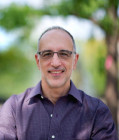Who Gets What They Want from Government?
Democracy requires that all citizens – rich, middle-class, and poor alike – have a say in the policies their government adopts. As U.S. incomes have become more unequal in recent decades, Americans have come to doubt that our government listens to everyone. Every four years, the National Election Survey asks people to agree or disagree that “Public officials don’t care much what people like me think.” Only 36% agreed in 1964, but 60% endorsed this view in 2008. And there is a sharp income divide: from 58% to 66% of low and middle-income Americans believe officials don’t care about their views, compared to slightly over two-fifths of the top tenth of income-earners.
To probe the facts about government responsiveness, I examined thousands of changes in federal policy over the past four decades and used national surveys to assess the strength of support (and opposition) for many kinds of policy shifts among poor, middle-class, and affluent Americans. The disparities in responsiveness are striking.
When the Rich Speak, Officials (Usually) Listen
Overall, federal policymaking aligns with what the affluent want – and brushes aside the middle class as well as the poor.
- Policy changes with strong support from well-off Americans are frequently adopted, while proposed changes the rich strongly oppose almost never pass. Over the last four decades, responsiveness has become steadily more unequal.
- The federal government ignores the middle class and poor when they want different policies than the rich. A change strongly favored only by the poor or middle class has no better chance of being adopted than a change they strongly oppose. The less well-off must agree with the rich to get what they want.
- Officials do pay closer attention to what most Americans want when the partisan division is close and presidential elections loom. Yet even when responsiveness is most equal, the affluent still see their preferences met to a greater degree than the less well-off.
Would More Responsive Policies Look Different?
More and less well-off Americans tend to agree on issues such as national defense, the environmental, drug policy, and support for education. But the affluent hold more liberal views on moral and religious issues, and more conservative views on economic and trade policy. If policymakers responded more equally to all income groups we could expect:
- Higher taxes on the affluent, stronger regulation of business, increased unemployment benefits, and a higher minimum wage.
- More protectionist trade rules, less foreign aid, and more conservative policies on abortion, gay rights, and school prayer.
Why Does U.S. Government Tilt Upward?
Almost half the members of the U.S. Congress are millionaires, so perhaps they find it easy to empathize with the affluent. But wealthy lawmakers come in every political stripe, so other factors must also be at work. Poor Americans are less likely to vote or to work for political parties, candidates, or campaigns. But the middle class does all these things just as often as the well-off. The most compelling evidence reflects that old adage about money as the “mothers’ milk” of politics. Affluent Americans enjoy rising incomes – and they are the ones who make most of the contributions flowing to politicians, interest groups, and political parties.
How to Improve Democratic Responsiveness
The lack of government responsiveness to the preferences of the poor and the middle-class violates basic democratic ideals, yet this research suggests ways to reduce America’s representational inequality:
- Prioritize policies that help the least well-off, yet also enjoy broad support – including job training, supports for families, and federal support for education.
- Adopt reforms that boost voter participation and enhance electoral competition to prompt officials to pay closer attention to what all citizens want from government.
- Change campaign finance regulations to enhance the leverage of small donors. Recent Supreme Court rulings push in the opposite direction, but rising public concern may spark renewed efforts to reverse the disproportionate political influence of the rich.
Read more in Martin Gilens, Affluence & Influence: Economic Inequality and Political Power in America (Princeton University Press and Russell Sage Foundation, fall 2012).
